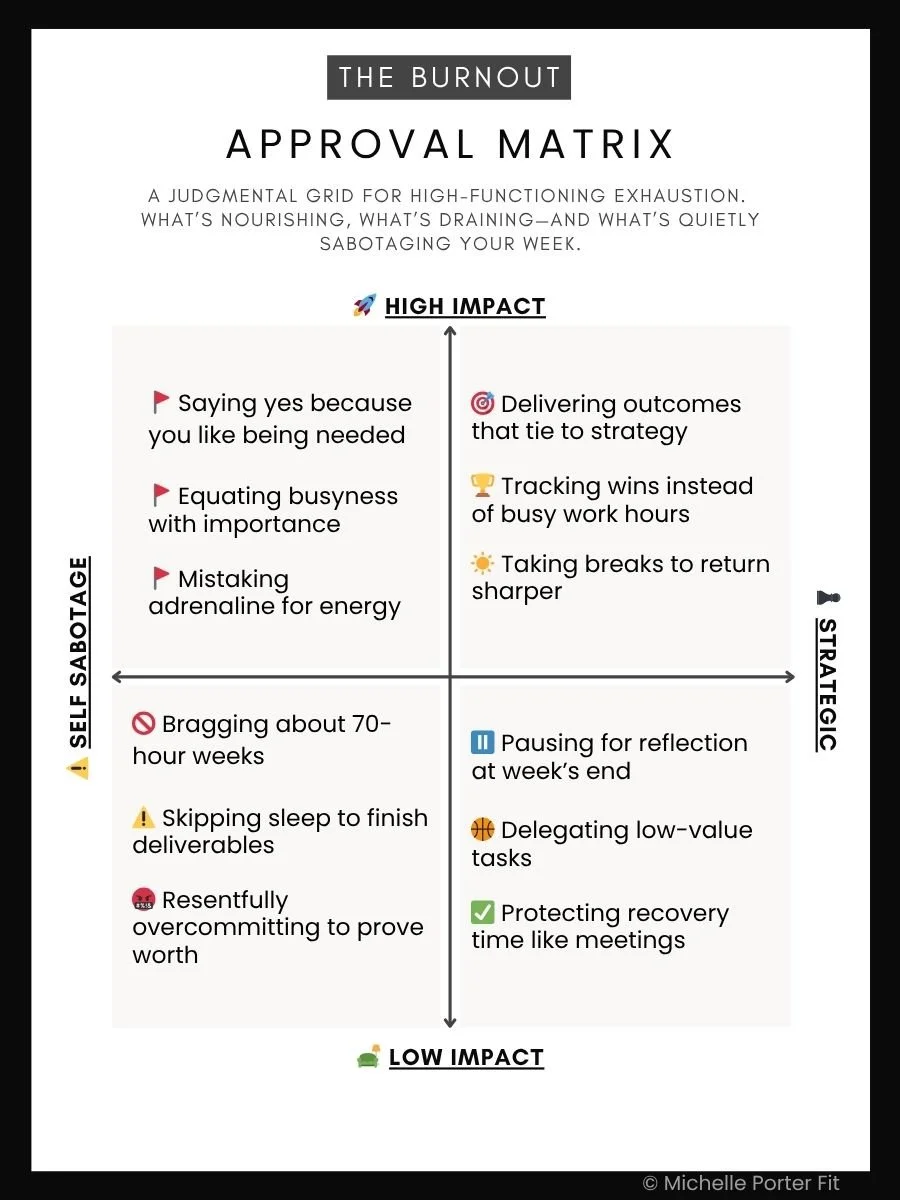🗞️ The Wellness Briefing – Edition No. 15: “The Overwork-Validation Loop” | October 7, 2025
3 minute read
Quick, high-impact wellness insights for ambitious professionals. Delivered Tuesdays.
Welcome Back to The Wellness Briefing
We live in a world that celebrates busyness. Many professionals wear “multitasking” like a badge of honor. But the evidence is clear: every switch between tasks carries a hidden cost.
The more we try to juggle, the more we erode focus, accuracy, and energy. Multitasking feels productive, but it’s usually performance sabotage in disguise.
Let’s begin.
🧠 1 Insight Worth Reading: A Stanford study found productivity per hour plummets after 50 hours per week—and after 55, there’s no measurable output at all. This is because long hours lead to mental fatigue, which clouds judgment, impairs memory, and reduces the quality and efficiency of work.Yet high-achievers often push beyond this, mistaking exhaustion for achievement. Read more on CNBC.
The Study's Key Findings
Diminishing Returns: Output is proportional to hours worked up to a point, but above that threshold, output increases at a decreasing rate.
Peak Productivity: Productivity per hour declines significantly after working more than 50 hours per week.
Pointless Effort: Beyond 55 hours, working more would be pointless as there is no measurable output. Link to Stanford Study PDF.
💡 What That Means for You: Being tired isn’t proof of impact—it’s proof of poor boundaries. Work that matters creates momentum; overwork creates drag. If your calendar feels like a battlefield, it may not be efficiency you need—it’s a reality check on validation.
✅ Try This: At the end of each week, track impact, not hours. Write down your 3 most meaningful outcomes, regardless of how long they took. This reframes “I worked 70 hours” into “I delivered on what mattered.”
🎯 Pro Tip from the Guide: You don’t get promoted, respected, or remembered for how late you stayed. You get remembered for what you actually contributed.
📊 Wellness Stat of the Week: 67% of professionals admit they equate “busyness” with “importance” at work—yet only 22% of executives say hours matter more than outcomes (Gallup, 2024).
💬 Coaching Cue: "The value of your work isn’t in how drained you feel—it’s in the difference it makes."
Encourage your team to measure impact over effort: ask them, “What meaningful outcome did this produce?” rather than “How many hours did you spend?”
Model sustainable performance by acknowledging wins and rest—showing that effectiveness doesn’t require exhaustion.
Use this as a lens during 1:1s: help direct reports reflect on accomplishments versus busyness, and reframe “overwork = value” thinking into strategic contribution.
📣 Gut Check: What’s harder for you—saying no or saying not now?
Sit with this question for a few minutes
Think about which one is more difficult for you and why
The Approval Matrix: A judgmental grid for the Success Hangover.
Want more support?
Book your free 20-min burnout consult here
Download your full Burnout Recovery Roadmap Guide
Get future issues delivered to your inbox Sign up here.
See you next Tuesday.
– Michelle
